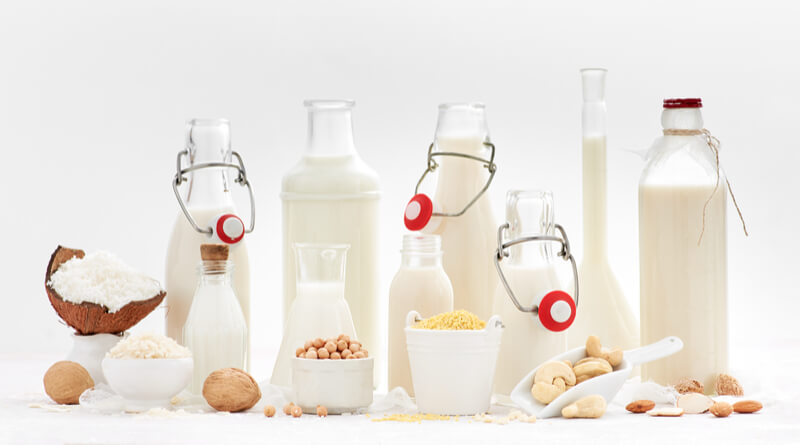You shouldn’t be feeding your toddlers any milk alternatives without consulting with your doctor first. This is because such alternatives will not necessarily supply the same essential nutrients as milk to the toddler. Doctors will suggest milk alternatives when the toddler is allergic to lactose or the other compounds that are present in cow’s milk.
Milk alternatives and what you should know
- Rice milk: Rice milk is derived from rice grains. It has a neutral taste overall and is considered safest for kids who are allergic to different milk types. It is very rare for a child to have an allergy to rice milk but this can certainly be the case. Rice milk, however, has a lower amount of fat than the other milk alternatives.
- Almond milk: This is another plant-based milk which is obtained when water and almonds are blended together. It is very easily prepared and has a creamy texture.
- Coconut milk: A mature coconut is grated and pulped to obtain coconut milk. A glass of coconut milk can meet half of the daily vitamin B-12 requirements and one-third of the daily vitamin D requirements. It is lower in calcium and protein content though. This, however, can lead to a deficiency in kids making it essential to complement the consumption of coconut milk with other nutritional foods.
- Soy milk: It is made by soaking and grinding soybeans. These are subsequently boiled and then filtered to obtain soy milk. This is a very popular milk alternative. Soy allergies are also found in many individuals which means this milk alternative might not be suitable for your kid if he is allergic.
- Lactose-free milk: Lactose-free milk is made by adding an enzyme to milk to break down the protein. The milk alternative is very similar to milk. However, if your kid is allergic to other components in milk (and not just lactose) this might not be an ideal choice.








